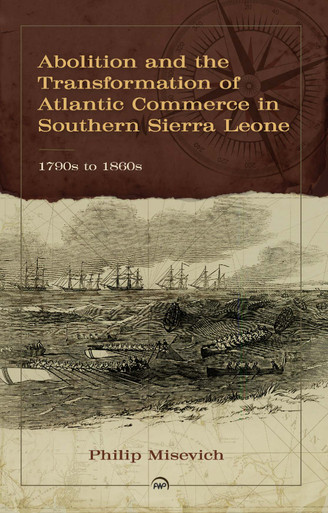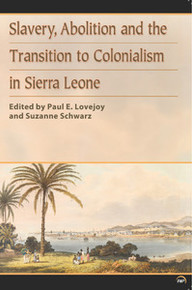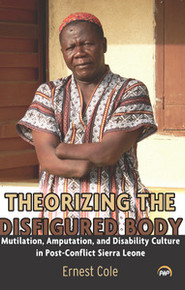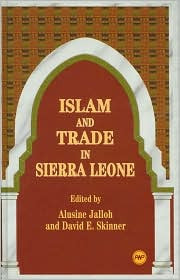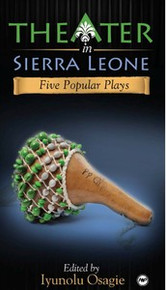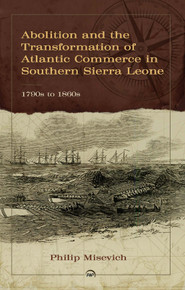Categories
Categories
Authors
Authors
- Home
- HARRIET TUBMAN SERIES
- Abolition and the Transformation of Atlantic Commerce in Southern Sierra Leone, 1790s to 1860s by Philip Misevich
Abolition and the Transformation of Atlantic Commerce in Southern Sierra Leone, 1790s to 1860s by Philip Misevich
Abolition and the Transformation of Atlantic Commerce in Southern Sierra Leone, 1790s to 1860s by Philip Misevich
Product Description
This book explores the relationship between the slave trade, agricultural production, and colonialism over the first half of the nineteenth century in southern Sierra Leone. Although it was located on the frontier of Freetown, the base from which British naval and colonial officials attempted to suppress African slave exports and promote free labor, southern Sierra Leone was violently integrated into the world that the slave trade made during its final “illegal” phase. The book reveals how these contrasting forces – one rooted in slave trading, the other in the conjoined projects of abolition and colonialism – collided along the southern Sierra Leone coast and profoundly affected the lives of free and enslaved Africans throughout the region.
***********************************
In this extraordinary book Philip Misevich shows how the global forces of slavery and anti-slavery played out in the single best place they could be studied, the British colony of Sierra Leone, where abolitionists and slave traders existed cheek by jowl for much of the nineteenth century. This powerful account is required reading for anyone interested in the history of the slave trade and the violent making of the Atlantic world.
—Marcus Rediker
Author of The Slave Ship: A Human History
Philip Misevich’s bold and masterfully-researched study re-conceptualizes the history of Sierra Leone’s coast by showing its centrality to West African and trans-oceanic commercial networks from the 1790s through the 1860s. By exploring transformations in patterns of slaving and agricultural production, Misevich makes powerful arguments about how people in Freetown, Sherbro, Gallinas, and other localities exploited connections to regional and Atlantic merchants to reshape their own societies.
—Walter Hawthorne
Author of From Africa to Brazil: Culture, Identity, and an Atlantic Slave Trade, 1600-1830
Philip Misevich is an Assistant Professor in the St. John’s University History Department. He is co-editor, with Kristin Mann, of The Rise and Demise of Slavery and the Slave Trade in the Atlantic World (University of Rochester Press, 2016) and co-director of the African Origins project.
Category
History/AFRICA
Trim size
5.5 X 8.5 inches
Page Count
302
 Loading... Please wait...
Loading... Please wait... 
